(UPDATED) The peace talks between the Government of the Philippines (GRP) and the National Democratic Front of the Philippines (NDFP) resumed in August 2016 after more than five years of impasse. Upon the election of President Rodrigo Duterte, vocal about his desire to achieve peace for the country and end the almost half century rebellion, the GRP panel agreed to reaffirm all previously signed agreements and the release of NDFP peace consultants and all other political prisoners as a matter of upholding previously signed agreements.
Seven months after much optimism for Duterte’s promise of release of political prisoners, only the first batch of 17 consultants and 2 political prisoners based on humanitarian grounds were released. These releases were made before the first round of talks could commence. After this and after the GRP repeatedly going back and forth on the promise, no other political prisoner has been released.
No sitting administration has given as many promises to release political prisoners as the current one, even only seven months in office. Would the Duterte government release the political prisoners after all? As a matter of justice, as an obligation to the peace talks, or maybe even just for palabra de honor?
We trace the Duterte government’s promise to release political prisoners.
1. May 23, 2016 press conference

On releasing Benito and Wilma Tiamzon, tagged Chairperson and Secretary-General of the Communist Party of the Philippines (CPP) respectively, President-elect Rodrigo Duterte said: “I might decide to just free them before the talks. Okay ako. Lahat, basta we deal in good faith. (All prisoners as long as we deal in good faith).”
The Tiamzon couple, along with 17 other NDFP consultants and those protected by the Joint Agreement on Safety and Immunity Guarantees were released just right before the August 22 first round of talks under the Duterte administration. Right out of jail, the 19 flew out of the country to participate in the peace talks in Oslo, Norway.
On releasing political prisoners before a final peace agreement is reached, Duterte said: “Basta sabi ko kung mayroon nang talks. Before the resolution, hindi kailangan tapusin, in good faith ba. Show of confidence building. Oo sige, bitawan ko na kayo, mag-usap tayo dito.”
(I said, I will release as long as there are talks. I will release prisoners even before the resolution of talks, in good faith. Show of confidence building. Okay, I will let you go, let’s talk.)
After the initial 19 and after two rounds of talks and the third one coming up in January, no other political prisoner has been released.
2. June 14-15, 2016 exploratory talks in Oslo
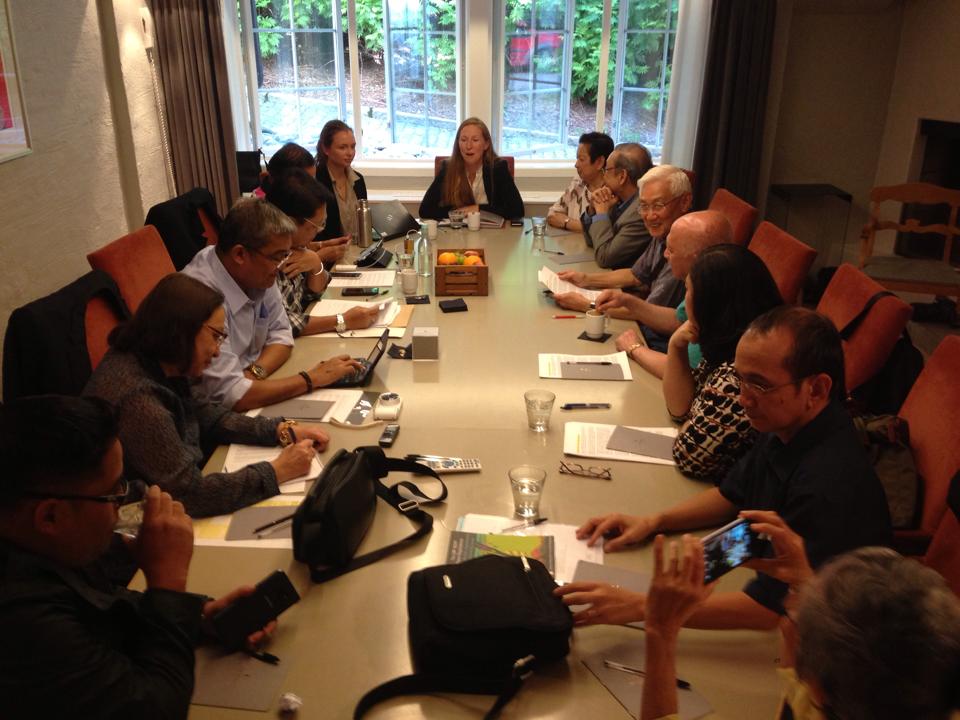
After the two-day exploratory talks, the GRP and the NDFP parties agreed that the government panel would recommend to Duterte the immediate release of all NDFP consultants and other JASIG-protected individuals so that they can participate in the resumption of the peace negotiations
The GRP and NDFP peace panels signed the June 15 Oslo Joint Statement in Oslo, Norway on June 15. The document laid down the five-point agenda in the resumption of the peace negotiations.
3. June 23, 2016

GRP Peace Panel Chair Silvestre Bello III: We seek the release of political prisoners who are reportedly covered by JASIG (Joint Agreement on Security and Immunity Guarantees). Those who are elderly and sick will also be released on humanitarian considerations.
As of this time, human rights group Karapatan lists 543 political prisoners all over the country, among them 18 NDFP consultants. Of the number, 130 are sickly, 33 are elderly, and 33 are women.
4. June 30,2016 inauguration speech in Malacañang Palace
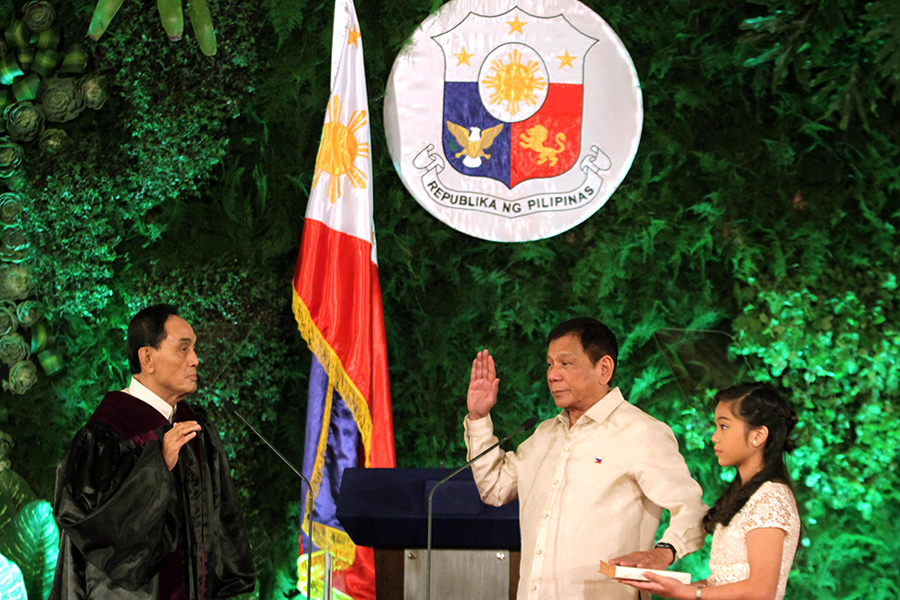
President Rodrigo Duterte speech: “On the domestic front, my administration is committed to implement all signed peace agreements in step with constitutional and legal reforms.”
Between the GRP and the NDFP, one such agreement is The Hague Declaration of 1992 that set forth the four substantive agenda (human rights, social and economic reforms, political and constitutional reforms and end of hostilities and disposition of forces) of the talks before a final peace agreement is reached and a recognition of parity to not cow one or the other to capitulation and abandoning the quest to address the roots of the armed conflict, the ultimate aim of the peace negotiations. Another the Comprehensive Agreement on Respect for Human Rights and International Humanitarian Law (CARHRIHL), the first (yet only) substantive agenda that the two parties have reached an agreement in 24 years of negotiations and relevant to the recognition that political offenses not be criminalized. The reaffirmation of JASIG should carry with it a recognition wrongful arrests and detentions committed by past administrations and the need to rectify this unjust situation.
5. August 15, 2016

In a dialogue in Malacanang with the NDFP delegation, Duterte said he wanted to release more political prisoners. He was also heard to have said, ‘I had been a prosecutor for many years and I know that these things happen. I will stop that policy and practice.’
6. August 22-26, 2016 first round of talks in Oslo

The first round of talks ended with the GRP and NDFP agreeing on all five points in the agenda.
The first agenda is the affirmation of previously signed agreements. The second agenda as the “accelerated process for negotiations, including the timeline for the completion of the remaining substantive agenda for the talks.” The third agenda was the reconstitution of the JASIG list. The fourth agenda was the amnesty proclamation for the release of all political prisoners, subject to concurrence of Congress. The fifth agenda evolved around the mode of the interim ceasefire, which would include mechanisms and coverage of the agreement.
The GRP declared an indefinite unilateral ceasefire on August 22, while the NDFP’s own indefinite unilateral ceasefire commenced on August 26. The two parties agreed to come up with a draft of the unified, bilateral ceasefire agreement in 60 days, contingent upon the delivery of commitments in the talks.
7. September 26, 2016
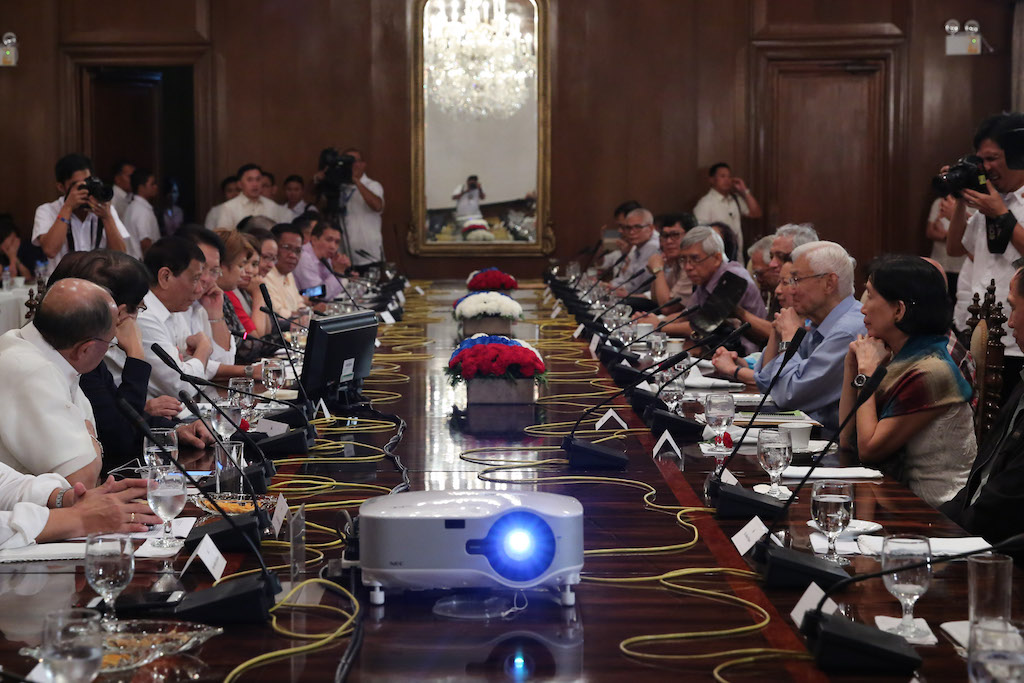
A month after the first round of the formal peace talks, Duterte presided the meeting with the GRP and NDFP panels in Malacañang Palace. Both panels gave their updates on the development of the talks that was held in Oslo, Norway.
It was also Duterte’s first meeting with the newly-released NDFP consultants.
8. October 2016 second round of talks
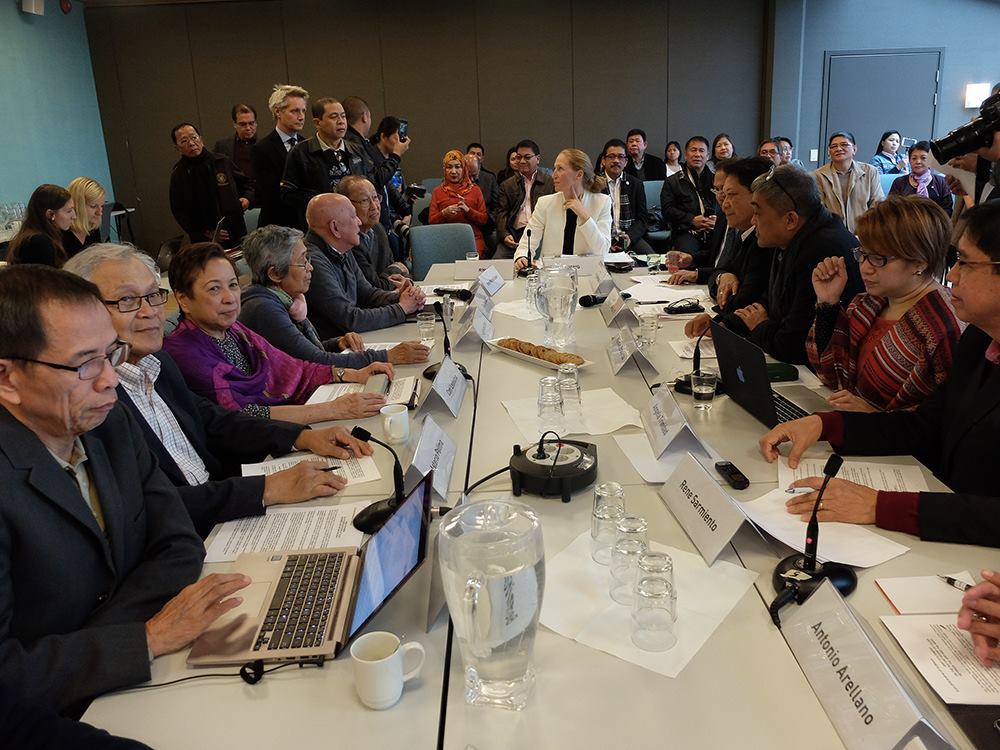
After the first round of talks and the releases prior it, no other political prisoners were released. The matter was taken up once more in the second round of peace talks on October 6 to 9, 2016.
The signed Joint Statement after the peace talks agreed on the three matters (1) political prisoners, (2) Amnesty Proclamation and (3) the next round of talks. On the political prisoners, the Joint Statement read:
“The Parties reviewed the Joint Oslo Statements dated June 15 and August 26, 2016 on the issue of the immediate release of detained prisoners listed by the NDFP, giving premium on those prisoners who will be released based on humanitarian grounds. They also reviewed the circumstances and status of JASIG-protected NDFP consultants.
They took good note of the positive steps so far taken, including the finalization of the Revised Guidelines on the Presidential Committee on Bail, Recognizance and Pardon, and agreed to accelerate the process consistent with the Parties’ common resolve.
They also agreed that the presidential clemency for and release of three remaining JASIG-protected consultants, Eduardo Sarmiento, Emeterio Antalan and Leopoldo Caloza, shall be expedited. The GRP shall release the prisoners who are listed by the NDFP in accordance with the CARHRIHL pending the approval of the proposed amnesty for their benefit.
The GRP Panel affirms its commitment to work for the release of these prisoners in expeditious and acceptable modes.”
9. November 30, 2016
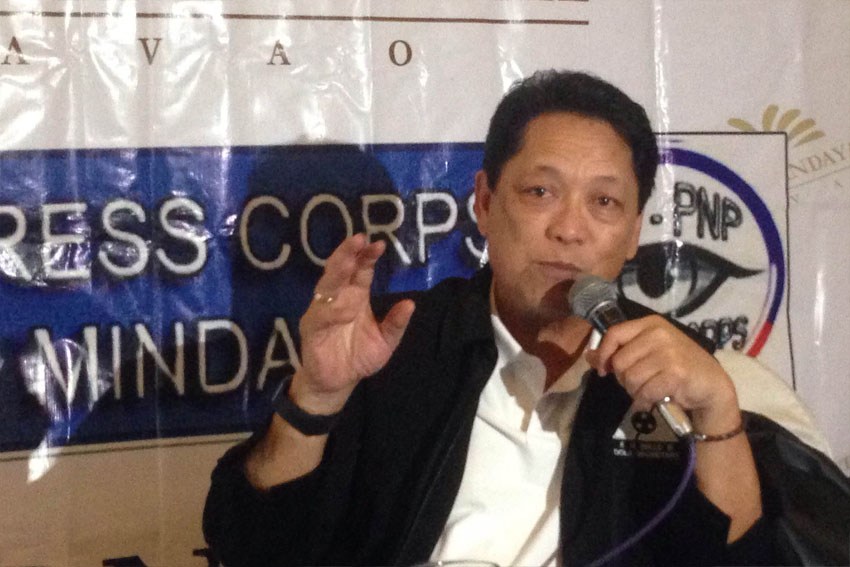
Bello vowed to release some 50-70 political prisoners before the International Human Rights Day on December 10 in a press conference at the Royal Mandaya Hotel in Davao City.
The CPP, however, said the mere 50 release is an unacceptable token. Further, they gave the Philippine government up to January to free all 432 political prisoners in the country or “forego the possibility of forging a bilateral cease fire agreement” and “risk cutting short as well the mutual interim cease fire declarations.”
Said ultimatum issued by the CPP prompted Duterte to set a meeting with NDFP representatives, particularly the Tiamzon couple, in the coming days.
10. December 1, 2016

After the death of the ailing nine-year detained, 66-year old peasant leader Bernabe Ocasla, Bello said that “The more than 400 political prisoners will be released in due time.”
He also said, “It was unfortunate that it happened just as we are working for the release of the elderly, sick and long detained NDF members on humanitarian grounds.”
11. December 3, 2016
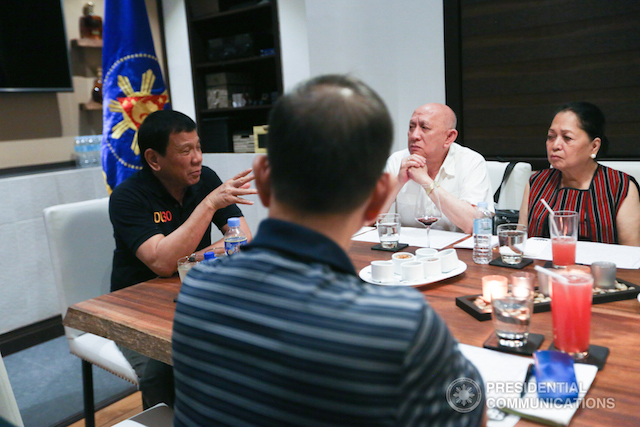
President Duterte met with NDFP officials in Davao City on December 3. In the meeting, Duterte agreed to release 130 political prisoners “as soon as poosible” or “before the start of the January peace talks.” The number 130 refer to the elderly and the sick among the more than 400 political prisoners at this time.
Present in the meeting that also tackled the Marcos burial and the war on drugs were NDFP peace panel chair Fidel Agcaoili, panel member Benito Tiamzon, peace consultant Wilma Tiamzon and Bayan Muna Representative Carlos Isagani Zarate, also the Vice Chairman of the Special Committee on Peace, Reconciliation and Unity at the House of Representatives
12. December 5, 2016

At the traditional lighting of a Christmas tree at the Malacañang grounds, Duterte said he will release elderly and ailing political prisoners before Christmas Day. He said, “If they are ready to be released and will be accepted by their families, i-release ko na before Christmas time. There’s really no point in detaining a person na matanda na tapos may sakit.”
In a matter of two days, Duterte upended the promise of releasing 130 political prisoners he made to NDFP representative only two days earlier. He said: “Now they are asking for release of 130 political prisoners. Ang sabi ko I cannot. I cannot give you that. I’m sorry but I have already conceded so much on the side of the government.”
He gave a condition for the release of 130 or more political prisoners, saying ”But if you can show me a document signed by the Republic of the Philippines representatives and the communist, then I will release the 130 plus more.”
13. December 6, 2016

Labor Secretary Silvestre Bello III, head of the government peace panel, said on this day that he met with Duterte on the night before and received clear instructions about the political prisoners.
“Produce to me a signed bilateral ceasefire agreement and I will release them within 48 hours. You can take my word for it,” Bello quoted Mr. Duterte as saying.
Taking up Duterte’s statement, NDFP Chief Political consultant Jose Maria Sison said that the signing of the bilateral ceasefire agreement by the GRP and NDFP panels can come ahead of the amnesty and release of all political prisoners by President Duterte but would be valid and effective only upon the actual release of political prisoners and upon the approval of the agreement by the GRP and NDFP principals.
“During the third round of formal talks in Rome in third week of January, President Duterte and I as CPP founding chairman and as authorized representative of the CC (Central Committee) of the CPP shall approve the (ceasefire) document,” Sison said.
“The GRP must keep its word of amnestying and releasing all the 434 political prisoners. Otherwise the CPP, NPA and NDFP would terminate any ceasefire agreement even if already signed at the level of the panels and shift to the mode of negotiating while fighting,” Sison said.
14. December 19, 2016

At the conferment of the presidential awards at Malacañang, Bello confirmed the government plan to release around 20 detainees before December 25, mostly sickly, elderly and women. He said they would be released, considering humanitarian grounds and bail recognizance. He also said the one to three of the 20 might even join the peace talks in January.
15. December 4, 2016

In an interview on ANC’s program ‘Dateline Philippine Weekend’ also shown over ABS-CBN news program ‘Bandila’, Bello was asked “Is the government committing to release all 400 political prisoners?”
His short and sure answer was “Yes, that is the commitment of our President and our President will keep his word.”
16. December 26, 2016
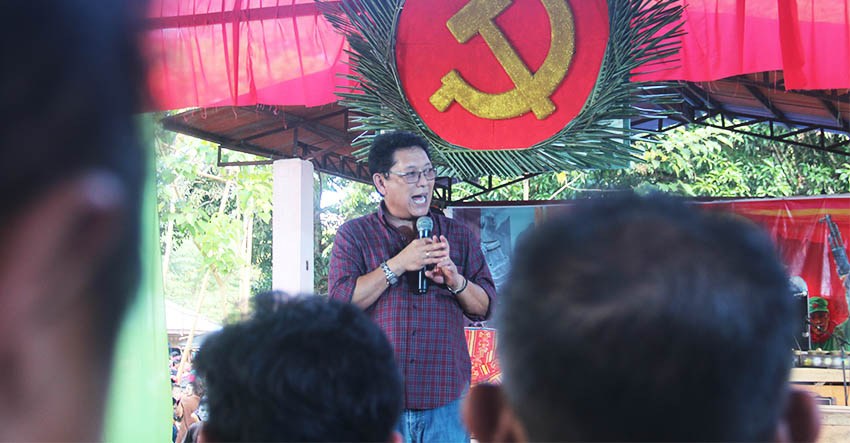
Attending the peace rally and the anniversary of the CPP on the outskirts of Duterte’s hometown Davao City, Bello again assured the release of the political prisoners before the end of the year, “hopefully 17 to 20.”
Bello also said that the releases on humanitarian reasons will also push through and that “it is just a matter of time.”
17. January 25, 2017
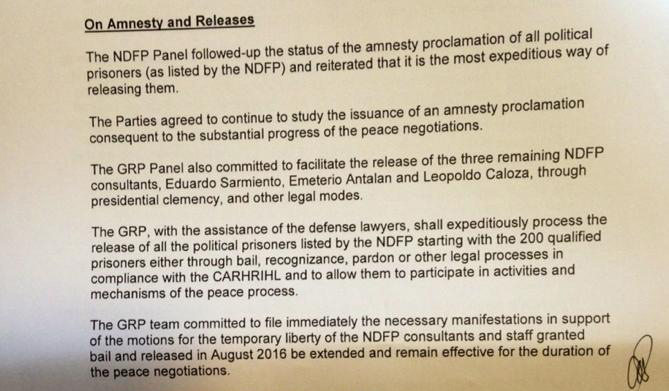
The end of what was described as successful third round of peace talks from January 19 to 25 produced a Joint Statement signed by the GRP and the NDFP peace panels.
Excerpts of the part on Amnesty and Releases read:
“The GRP Panel also committed to facilitate the release of three remaining NDFP consultants, Eduardo Sarmiento, Emeterio Antalan and Leopoldo Caloza, through presidential clemency, and other legal modes.”
“The GRP, with the assistance of the defense lawyers, shall expeditiously process the release of all the political prisoners listed by the NDFP starting with the 200 qualified political prisoners either through bail, recognizance, pardon or other legal processes in compliance with the CARHRIHL and to allow them to participate in activities and mechanisms of the peace process.”
18. April 5, 2017

In a press conference during the 4th round of peace talks in The Netherlands, where the NDFP announced the release of prisoners-of-war, alongside with the GRP panel, Presidential Peace Adviser Jesus Dureza was asked by the media if there will be a ‘reciprocal’ move from the GRP.
“It will not be in the context of reciprocal. Both sides, I think, decided that in pursuant to the goodwill that is happening on the table to make those releases,” said Dureza.
The secretary said to “just wait” for when the releases would happen as they have to go through the processes.
“Just for everyone to understand, there was that earlier real commitment to commit those releases, we just had to go through the processes because many of them have cases in different courts and we had to deal individually with these courts. We’re attending to this,” said Sec. Dureza.
The political prisoners to be released are “some are on humanitarian grounds, some on JASIG” said Dureza. Political prisoners to be released number to 23 for the moment.
19. April 5, 2017

During President Rodrigo Duterte’s meeting with the Filipino Community in Hong Kong on May 13, 2017, he claimed that he already released 14 convicted prisoners from the National Bilibid Prison, including detained communists.
“I cannot afford to fight with anybody, especially to wage war against my own people. So whether we like it or not — [applause]Alam nila Liza ‘yan that, ano ako open ako and I just released about 14 prisoners
from Bilibid, ‘yung mga komunista na convicted na as a show of… And besides there were others,” said Duterte.
Although, according to Karapatan, no additional political prisoners were released since August 2016 in line with the peace talks.





























